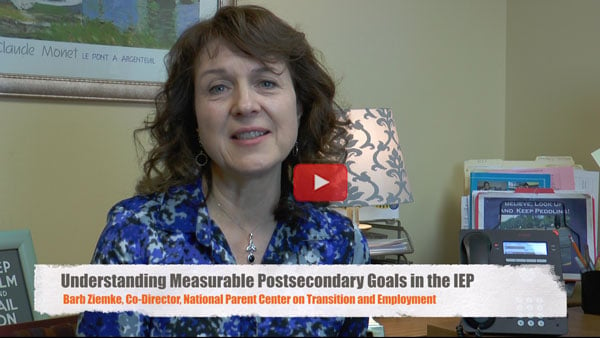Middle & High School Transition Planning
Parents of youth with disabilities should begin thinking about transition (planning for adulthood) as early as possible. Although the formal process of transition planning doesn’t begin until high school, it is helpful to begin thinking about it much sooner.

|
Individuals with Disabilities Education Act (IDEA) and Individualized Education Programs (IEPs)When a youth reaches the formal transition age (16 in most states), the IEP must contain specific transition goals, plans, and services related to his or her interests and needs. Families are a required partner on the IEP team and play a valuable role in helping support youth as they work to attain their dreams for adulthood. |

|
Supporting Your Teen in High SchoolThe road to adulthood for youth with disabilities is filled with opportunity, and parents play a key role. Discover tips and resources to support your teen during high school. |

|
College PlanningToday, with many flexible postsecondary education options available, youth with disabilities will want to begin their search early to find the program that best fits their interests and needs. It is helpful for families to begin considering admissions requirements and skills required to help ensure their youth is on track for their desired program. |

|
Preparing for EmploymentTo successfully transition to the world of work, youth should use the school years to explore careers and engage in meaningful work experiences. Parents can help by becoming aware of community resources that help support employment, and advocate for social skill and work skill development through targeted activities listed in the IEP. |
Transition Planning Resources
- Self-Advocacy Terms and Descriptions
- The Guideposts for Success: A Framework for Families Preparing Youth for Adulthood
- Documents to Keep for Youth Transitioning to Adult Life
- Mapping Dreams: The Transition to Adulthood Excerpt
Call to order the full publication. - Transition Planning for Adolescents with Special Health Care Needs and Disabilities: Information for Families and Teens
- Transition to Adulthood: Where Do We Start
- Community Resources and Partners - Who is Able to Help?
- Making the Move from Elementary to Middle or Junior High School: Transition Tips for Parents of Students with Disabilities
- Transition Planning Tips for Linguistically and Culturally Diverse Youth with Disabilities
- Transition Guide to Postsecondary Education and Employment for Students and Youth with Disabilities , a publication from the U.S. Department of Education, Office of Special Education and Rehabilitative Services.


